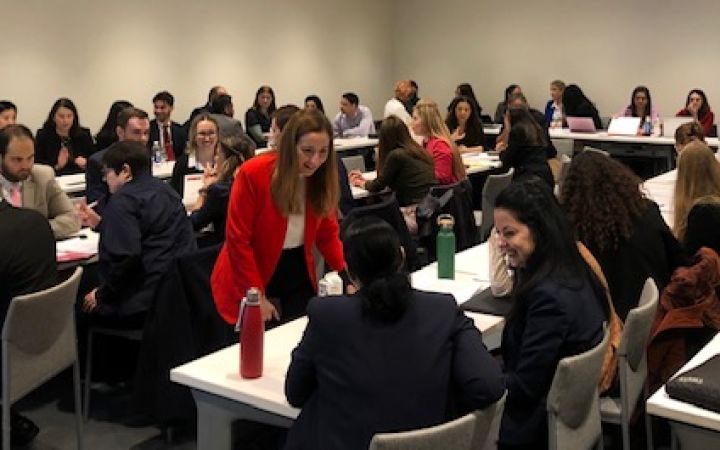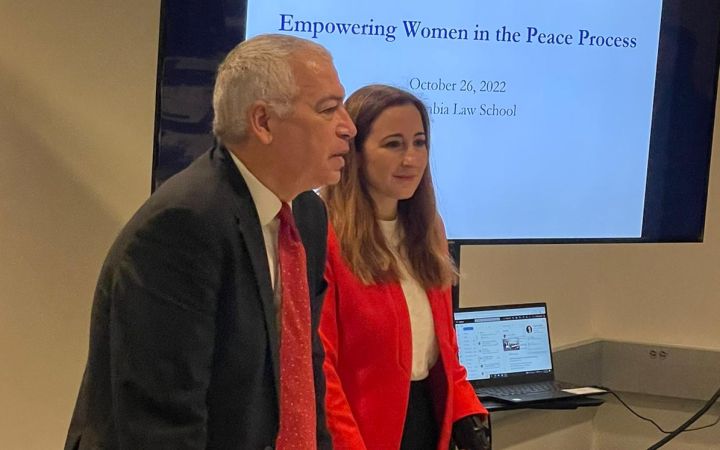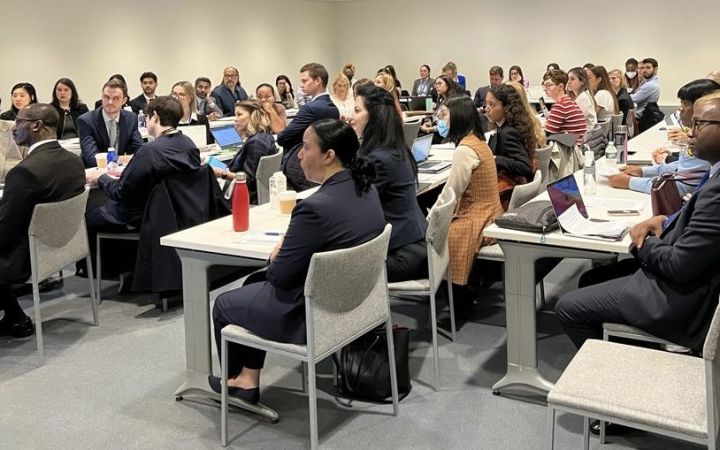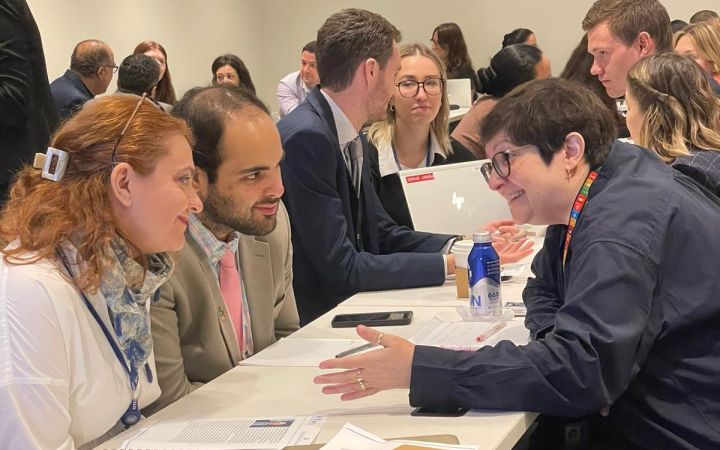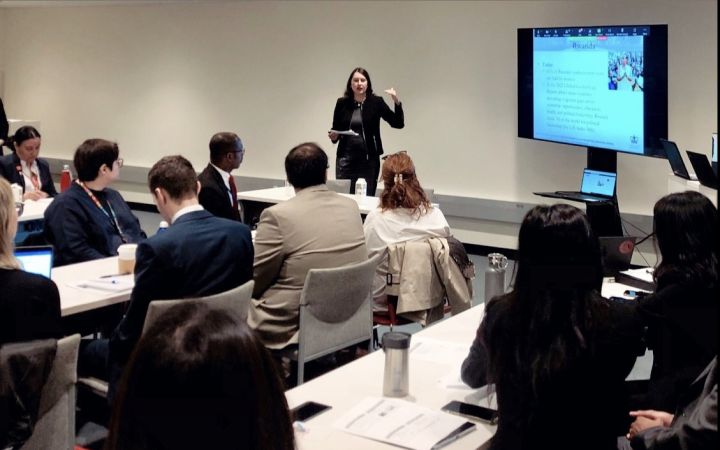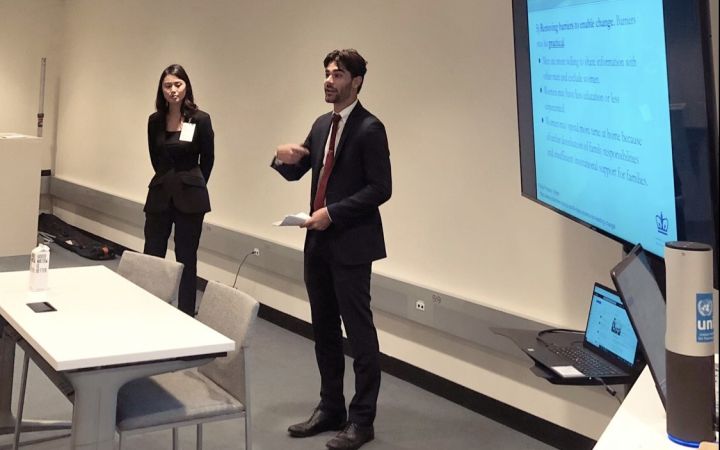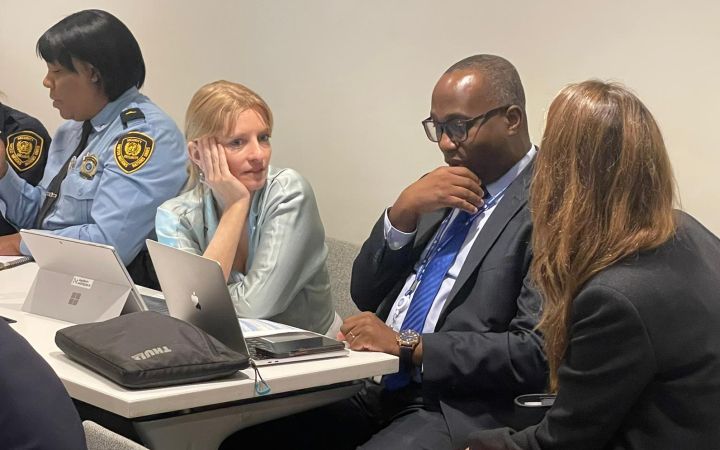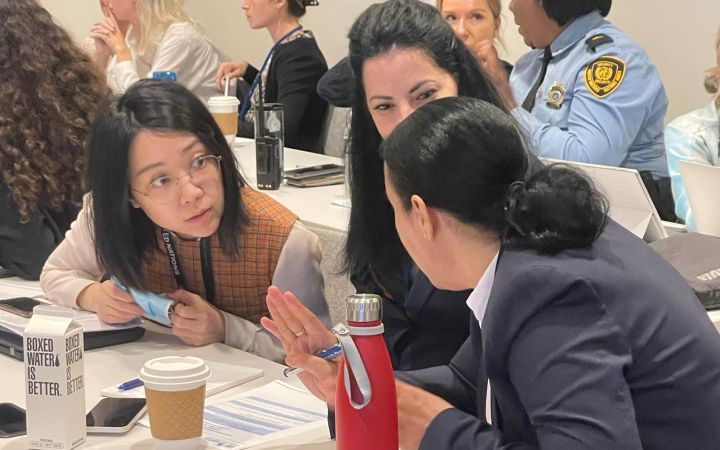26 October 2022, New York, United States – The United Nations Institute for Training and Research (UNITAR) New York office, in partnership with Columbia Law School, kickstarted the three-event Fall 2022 presentations with Women Empowerment in the Peace Process on Wednesday, 26 October 2022. Gathering a total of 135 participants from around the world, the event aimed at recognizing the importance and urgency of increasing women’s meaningful participation in peace processes, discerning how to instigate change at the organizational level, and understanding how to spearhead change at the individual level.
The event started with Mr Marco Suazo, Head of UNITAR New York Office and Ms Alexandra Carter, Professor at Columbia Law School delivering welcoming remarks and introducing the Fall 2022 UNITAR - Columbia Law School Mediation series. The session then continued with case studies, approaches and processes presented by Professor Alexandra Carter’s team members from the Columbia Law School Mediation Clinic. The workshop also included interactive exercises.
The first presenter, Mr Brenton Browne explained the importance of including women in the United Nations. He discussed the UN Sustainable Development Goals and how including women in positions of power and influence is essential in achieving some or all of them. He also discussed UN Resolution 1325 and its impact on women’s role in the peace process. He also explained the progressive increase of peace agreements referencing women from 1990 to 2015.
Then, Ms Angel Li focused on a case study which dealt with the amplification of women’s voices in the White House. She discussed how female staffers in the Obama White House employed an amplification method to enhance their contributions in meetings. Then, Ms Angel Li initiated a group exercise that encouraged discussion on ways the amplification approach can succeed in including women and the possible limitations of the amplification approach.
Mr Brenton Browne then discussed gender inclusivity in Rwanda. He explained the role women played in Rwanda after the Rwandan Genocide. Mr Browne then invited participants to have group discussions about ways the Rwanda’s approach can succeed in including women, the possible limitations of Rwanda’s approach as well as the challenges other countries may face in implementing a similar initiative.
The floor was then given to Ms Joy Chow who described the top-down approaches to empowering women. One example is the Rwandan government’s approach discussed earlier by Mr Browne. She discussed the benefits and limitations of employing a strategy to empower women that comes from the high levels of an organization.
Ms Sonia Helen Pascale discussed the bottom-up approaches to empowering women. The White House staffers’ approach to gender inclusivity illustrates this concept. She described the benefits and limitations of employing a strategy to empower women that comes from the lower levels of an organization. She also considered an integrated approach of both the top-down and bottom-up approaches.
The floor was passed to Ms Skye Lee and Mr Sasha Yusef who explained the 8-step process for leading change. They first explained that an integrated approach to empowering women in peacemaking processes would combine both top-down leadership and bottom-up buy-in. They examined eight crucial steps an organization can take to facilitate change and bring more women into the peace process, which include the creation of a sense of urgency, the creation of a vision, the building of a coalition and the removal of barriers, to name a few.
Finally, the last presentation of the day was given by Mr Brenton Browne and Ms Angel Li who discussed women’s role in quelling The Troubles in Northern Ireland. They explained how women played a crucial role in ending the armed conflict, through the Northern Ireland Women’s Coalition role in formalizing the Good Friday Agreement. Mr Browne initiated the last exercise, which would push participants to discuss their perspective on NIWC’s approach success rate, the approach applied in other armed conflicts as well as problems with the approach.


